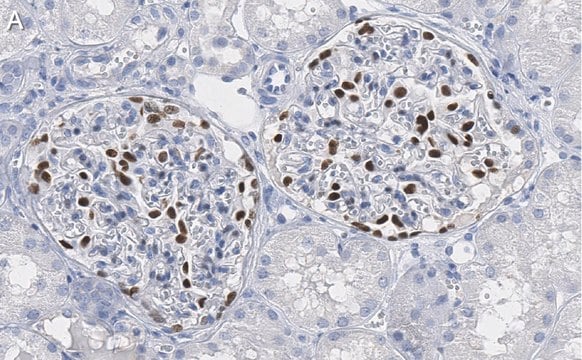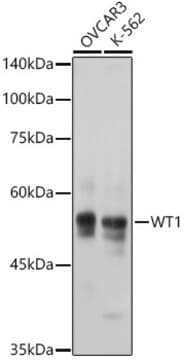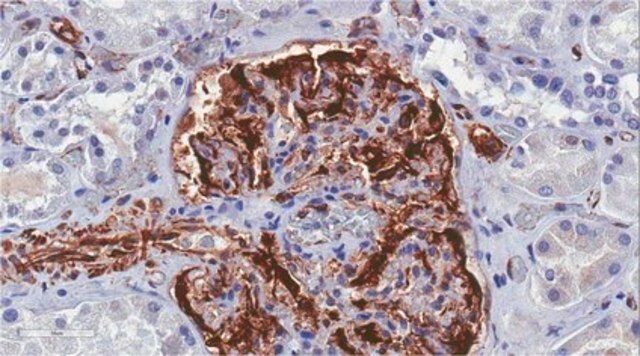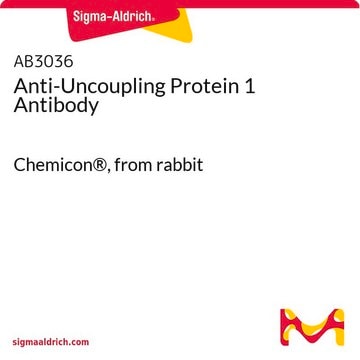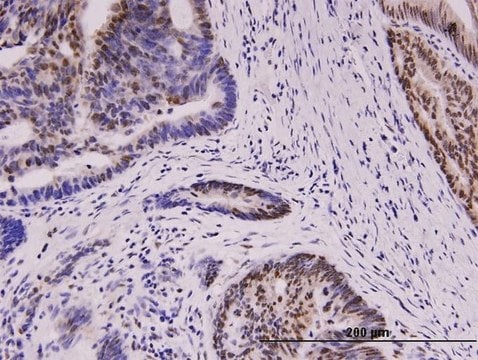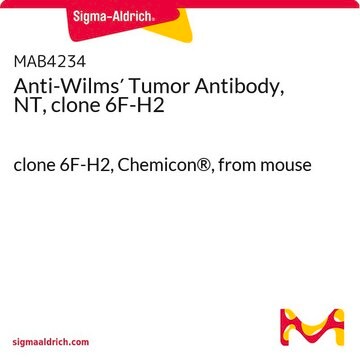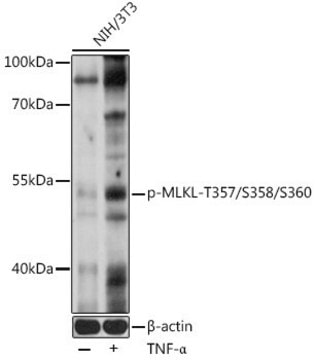ABC1690
Anti-Wilms Tumor (WT33)
from rabbit, purified by affinity chromatography
Synonym(s):
WT33, WT1
About This Item
WB
western blot: suitable
Recommended Products
biological source
rabbit
Quality Level
antibody form
affinity isolated antibody
antibody product type
primary antibodies
clone
polyclonal
purified by
affinity chromatography
species reactivity
human
species reactivity (predicted by homology)
rat (based on 100% sequence homology), mouse (based on 100% sequence homology)
packaging
antibody small pack of 25 μg
technique(s)
immunohistochemistry: suitable (paraffin)
western blot: suitable
NCBI accession no.
UniProt accession no.
target post-translational modification
unmodified
Gene Information
human ... WT1(7490)
General description
Specificity
Immunogen
Application
Apoptosis & Cancer
Immunohistochemistry Analysis: A 1: 250-1,000 dilution from a representative lot detected Wilms Wilms Tumor (WT33) in human testis and human kidney tissues.
Quality
Western Blotting Analysis: 2 µg/mL of this antibody detected Wilms Tumor (WT33) in human kidney tissue lysate.
Target description
Physical form
Storage and Stability
Other Notes
Disclaimer
Not finding the right product?
Try our Product Selector Tool.
Certificates of Analysis (COA)
Search for Certificates of Analysis (COA) by entering the products Lot/Batch Number. Lot and Batch Numbers can be found on a product’s label following the words ‘Lot’ or ‘Batch’.
Already Own This Product?
Find documentation for the products that you have recently purchased in the Document Library.
Our team of scientists has experience in all areas of research including Life Science, Material Science, Chemical Synthesis, Chromatography, Analytical and many others.
Contact Technical Service